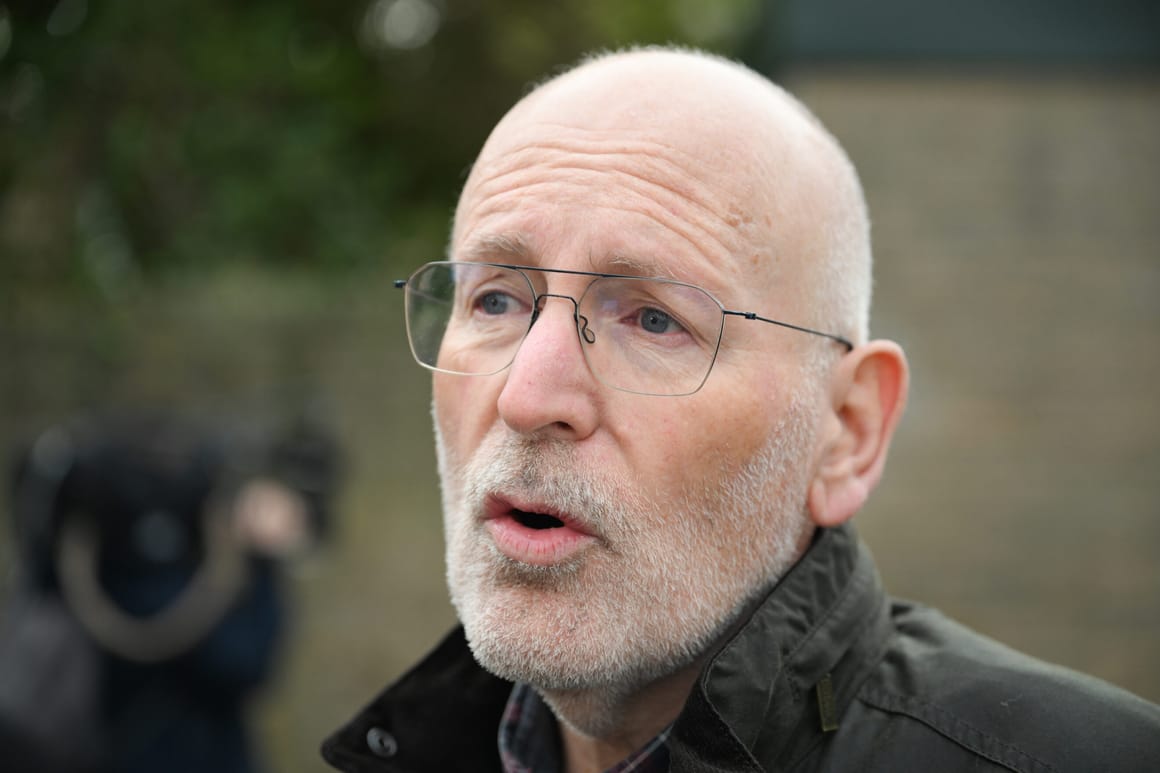Politics
Frans Timmermans Resigns as Dutch GreenLeft-Labor Leader After Election Loss

Frans Timmermans, the former European Commission climate chief, announced his resignation as the leader of the Dutch GreenLeft-Labor alliance following disappointing results in the recent elections held on March 15, 2024. Exit polls indicated that the alliance would secure only 20 seats, a decline of five seats from the previous election in 2023 and significantly below pre-election forecasts.
In a statement reflecting on the election outcomes, Timmermans expressed his frustration and accountability, saying, “It’s clear that I, for whatever reason, couldn’t convince people to vote for us.” The results marked a significant setback for the alliance, which had hoped to gain ground in a shifting political landscape.
Impact on the Dutch Political Landscape
The GreenLeft-Labor alliance’s poor performance has raised questions about its future strategy and leadership. Timmermans emphasized the necessity for a generational shift in leadership, stating, “It’s time that I take a step back and transfer the lead of our movement to the next generation.” His resignation signals a pivotal moment for the party as it seeks to redefine its approach to engage voters.
Political analysts suggest that the election results reflect broader trends within Dutch politics, including shifting voter priorities and the emergence of new political movements. Timmermans’ leadership has been marked by significant climate initiatives during his tenure with the European Commission, but it appears that these efforts did not resonate sufficiently with the electorate.
The GreenLeft-Labor alliance has historically positioned itself as a champion of progressive policies, focusing on environmental issues and social justice. However, the recent electoral defeat may compel the party to reassess its platform and messaging strategies to better align with voter expectations.
Next Steps for the Alliance
In the wake of Timmermans’ announcement, speculation about potential successors has begun. Members of the party have expressed a desire for a leader who can invigorate the base and attract new supporters, particularly younger voters who are increasingly influential in Dutch politics.
As the party contemplates its next steps, the focus will likely be on building a robust strategy to reconnect with the electorate. The need for adaptability in political messaging and outreach strategies will be critical as the GreenLeft-Labor alliance seeks to regain its footing in a competitive environment.
The resignation of such a prominent figure as Frans Timmermans may reverberate beyond the party, influencing the dynamics of Dutch politics in the coming months. As the party prepares for its next chapter, the implications of this leadership change will be closely monitored by analysts and voters alike.
-

 Health3 months ago
Health3 months agoNeurologist Warns Excessive Use of Supplements Can Harm Brain
-

 Health3 months ago
Health3 months agoFiona Phillips’ Husband Shares Heartfelt Update on Her Alzheimer’s Journey
-

 Science1 month ago
Science1 month agoBrian Cox Addresses Claims of Alien Probe in 3I/ATLAS Discovery
-

 Science1 month ago
Science1 month agoNASA Investigates Unusual Comet 3I/ATLAS; New Findings Emerge
-

 Science4 weeks ago
Science4 weeks agoScientists Examine 3I/ATLAS: Alien Artifact or Cosmic Oddity?
-

 Entertainment4 months ago
Entertainment4 months agoKerry Katona Discusses Future Baby Plans and Brian McFadden’s Wedding
-

 Science4 weeks ago
Science4 weeks agoNASA Investigates Speedy Object 3I/ATLAS, Sparking Speculation
-

 Entertainment4 months ago
Entertainment4 months agoEmmerdale Faces Tension as Dylan and April’s Lives Hang in the Balance
-

 World3 months ago
World3 months agoCole Palmer’s Cryptic Message to Kobbie Mainoo Following Loan Talks
-

 Science4 weeks ago
Science4 weeks agoNASA Scientists Explore Origins of 3I/ATLAS, a Fast-Moving Visitor
-

 Entertainment4 months ago
Entertainment4 months agoLove Island Star Toni Laite’s Mother Expresses Disappointment Over Coupling Decision
-

 Entertainment3 months ago
Entertainment3 months agoMajor Cast Changes at Coronation Street: Exits and Returns in 2025









